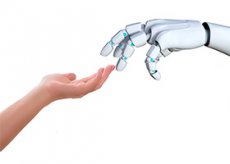New publications
A new drug has been created by a robot
Last reviewed: 02.07.2025

All iLive content is medically reviewed or fact checked to ensure as much factual accuracy as possible.
We have strict sourcing guidelines and only link to reputable media sites, academic research institutions and, whenever possible, medically peer reviewed studies. Note that the numbers in parentheses ([1], [2], etc.) are clickable links to these studies.
If you feel that any of our content is inaccurate, out-of-date, or otherwise questionable, please select it and press Ctrl + Enter.

It is no secret that the process of creating and further testing new drugs is always very long and labor-intensive. However, modern science does not stand still: now this issue is being solved not only by pharmacologists, but also by robots. Experts have entrusted the creation of drugs to robots, as they are able to quickly and accurately calculate all the probable results and settle on the most optimal formula for the drug. The mechanism voiced plays an important role in the issue of creating drugs, especially those to which resistance develops in a short period of time.
As described in the article Science Daily, the experiment was conducted by specialists representing the University of Cambridge. They managed to create a new drug, the action of which is aimed at treating malaria.
Malaria is an extremely dangerous pathology. According to statistics, more than 500 thousand people die from malaria every year in African and Southeast Asian countries alone. Preventive and therapeutic measures against malaria are difficult. And the thing is, first of all, that many strains of the causative agent of the disease adapt very quickly, developing resistance to medications. Doctors have to constantly look for "weaknesses" in order to destroy the malarial plasmodium.
To solve the existing problem, scientists connected a specialized robot named Eve: it had to figure out a way to destroy the causative agent of the disease.
The robot's artificial intelligence did a lot of analytical work before it made the appropriate conclusion: it turned out that a well-known substance called triclosan can become a new drug. This substance is currently widely used, adding it to detergents and toothpastes, since triclosan effectively removes most bacteria. The component's action is based on the inhibition of the enzyme enoyl reductase, which is involved in the production of fatty acids and in cellular trophic processes.
The robot discovered that one of the properties of triclosan is the suppression of culture development at one of the growth stages of the malaria pathogen. During the study, specialists found out that this substance also affects another plasmodium enzyme - dihydrofolate reductase. Several tests were conducted: they tried to block the enzyme using another antimalarial drug Pyrimethamine, but strains resistant to this drug have already been found in world practice. Remarkably, triclosan demonstrated high efficiency even in relation to these resistant strains of the malaria pathogen. Scientists were surprised and pleased: triclosan has a relatively low cost price, it is mass-produced all over the world. Therefore, the use of the new drug can be started in the very near future.
More details about the study and its results can be read on the pages of Science Daily.

 [
[